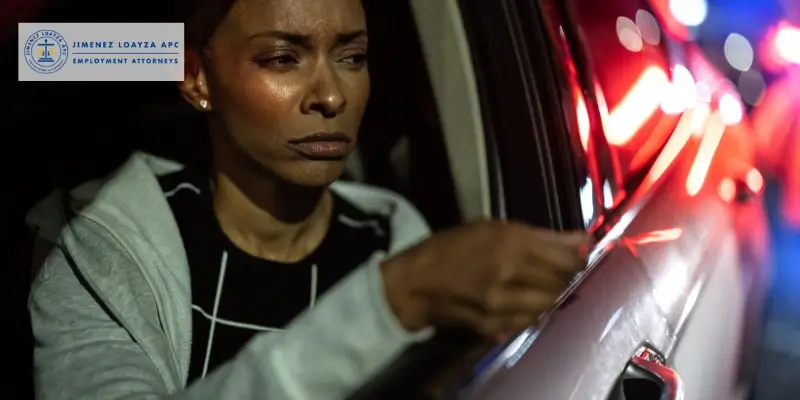
Identifying racial profiling in California is essential for protecting civil rights and holding law enforcement accountable. Across the state, racial profiling continues to be a persistent issue, even though there have been legislative efforts to combat it. Whether it is at a traffic stop in San Francisco or a pedestrian questioning in San Diego, individuals of color are disproportionately subjected to law enforcement scrutiny based on their race, ethnicity, or national origin.
What Is Racial Profiling?
Racial profiling is when the police or other authorities single out individuals because of their race or ethnicity. Some common examples are stop-and-frisks by police who question or search pedestrians of color without any reasonable suspicion, or singling out individuals of Middle Eastern, South Asian, or Muslim descent when going through airport security. These actions are against the U.S. Constitution and California law.
California’s Racial and Identity Profiling Act of 2015 (AB 953) prohibits racial profiling and mandates that law enforcement agencies collect and report data on all stops, including the person’s perceived race, gender, and the reason for the stop. The law also established the RIPA Advisory Board, which analyzes this data and issues annual reports to identify patterns and recommend any reforms.

Legal Protections and Warning Signs
California Penal Code §13519.4 requires police departments to adopt anti-profiling policies and train officers on implicit bias and cultural sensitivity. The California Constitution guarantees equal protection under the law. Warning signs of racial profiling include:
- Stops without reasonable suspicion or explanation
- Questions focused on race, language, or accent
- Disproportionate targeting of minority individuals in specific areas
- Use of racially charged language or slurs
- Repeated stops for minor or nonexistent violations
Identifying Racial Profiling Incidents
There are many recent cases of how racial profiling continues to impact the lives of Californians. In Beverly Hills, it was reported that police stopped over 1,000 black motorists between 2019 and 2021, yet only two were convicted of crimes. In Fresno, a black man was detained for 40 minutes over a minor traffic violation and was falsely accused of possessing marijuana.
Even federal agencies have come under scrutiny. In Los Angeles, ICE agents conducted raids based on appearance, language, and location, all of which disproportionately targeted Latino residents. A federal court initially blocked the practice, but the Supreme Court later allowed it to continue pending review.
What Victims Can Do
If you believe you have been racially profiled, you should:
- Stay calm and compliant during the encounter.
- Document everything, including the officer’s names, badge numbers, time, location, and what was said.
- File a complaint with the local police oversight body or the California Department of Justice.
- Consult with a racial discrimination lawyer to explore your legal options.
Hire a Racial Discrimination Lawyer
Racial profiling is not just a violation of trust, but a violation of the law. If you or someone you know has been unfairly targeted, you need to hire a racial discrimination lawyer to help you assert your rights and hold the authorities responsible. Reach out to Jimenez Loayza, APC, right away.